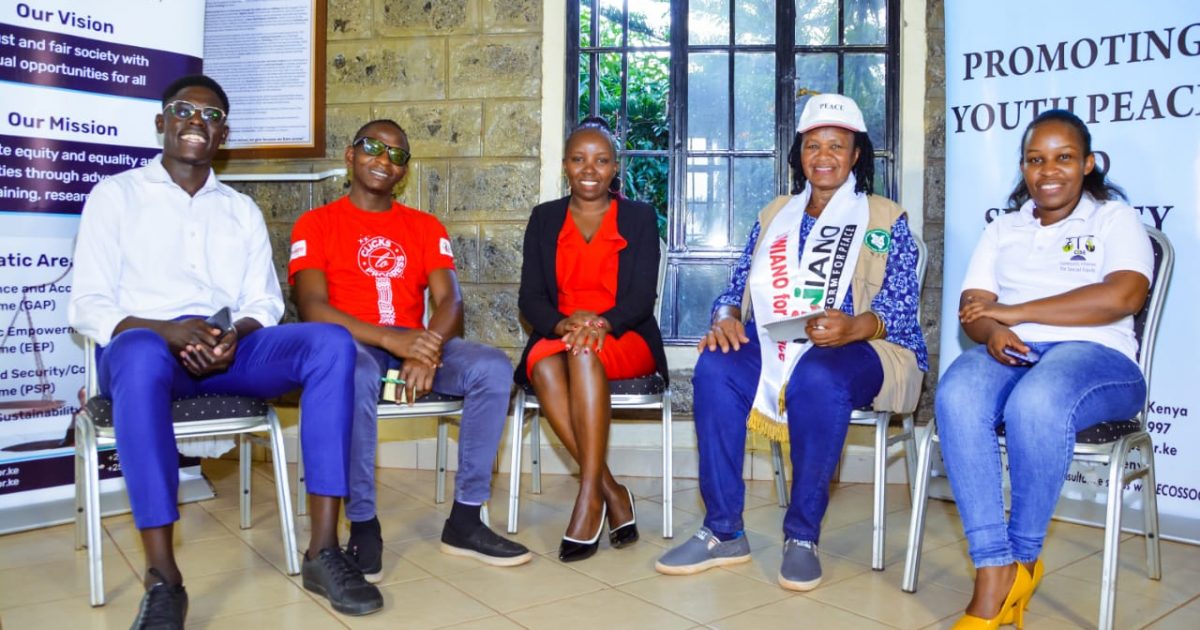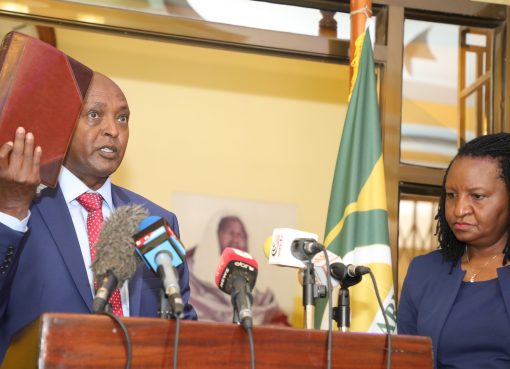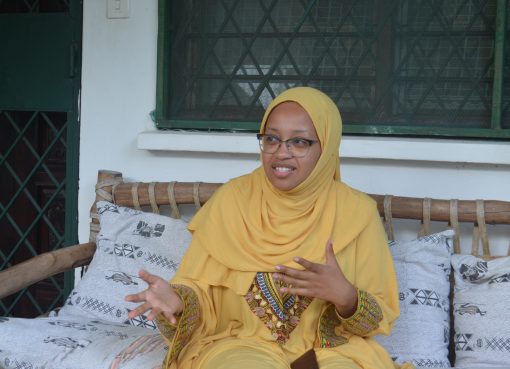As the world marks the International Day of Peace, the Kenyan youth have been urged to use the various digital platforms at their disposal to champion for peace in the world.
Youthful CEO Community Initiatives for Social Equity (CISE) Joan Njeri opines that the youth have become aware of the digital tools at their disposal, using them for business, and they should direct the same energy in preaching the message of peace across the world.
“Most recently, the youth have shown a lot of energy and digital skills in expressing their dissatisfaction with governance through protests, and the focus at the moment should be how this energy that would otherwise be used to propagate anarchy and violence can be channelled to propagate the message of peace worldwide.
Peace has to start with an individual, so we cannot preach peace in the world if in our own personal spaces and societies we lack the same,” she stressed.
Njeri observed that in her engagement with the youth, they have cited poverty, gender inequality, high cost of living, unemployment, and corruption as some of the issues that lead to lack of peace in a country.
“There is peace as being the absence of war per se, but positive peace is manifested by, among other things, low levels of corruption, an enabling business environment, a well-functioning government, equitable distribution of resources, free flow of information, and acceptance of others rights,” she noted.
According to her, the youth should aim to participate in budgetary processes by first understanding the budget cycles to ensure gender-responsive budgets and bridge the gender inequality gap for peaceful coexistence.
This, she says, will give the youth an opportunity to be proactive in the budget-making process rather than reactive on whether their issues have been addressed and considered fully.
She advises the youth to actively and intentionally attend public participation forums organised by the National and county governments in their respective areas. “The youth should also register as voters and actively participate in the election process by both vying for elective positions and voting.”
Additionally, Ms. Njeri notes that the national and county governments ought to embrace public participation as anchored in the Constitution, as this will solve almost all problems in the country if taken with the seriousness it deserves.
“A lot has been taken for granted in regard to structures, institutions, and attitudes, and when these are compromised, corruption is perpetuated and violence is propagated. Moreover, the government should be keen on creating an enabling business environment as well as showing political goodwill by intentionally involving the youth in key decision-making processes.
With the surge in unemployment and a robust digital uptake in the country, the government ought to focus on creating a favourable environment for youth to engage in digital business as well as physical business,” she notes.
International Day of Peace is a UN sanctioned holiday observed annually on September 21 and is dedicated to world peace, specifically the absence of war and violence. On this day, a temporary ceasefire in combat zones for humanitarian aid access is promoted.
This year’s theme is Cultivating a Culture of Peace.
By Florence Kinyua





